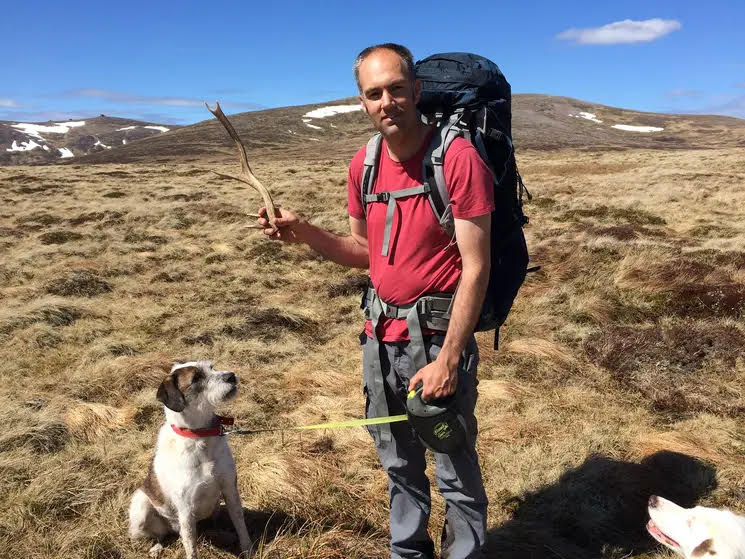We talked to our Marine Operations Manager, Rob Everitt, about how he sees his role in the business, what he enjoys most about working at HydroSurv and what else interests him when he’s not at work.
 Question: Can you describe your role at HydroSurv in just three words?
Question: Can you describe your role at HydroSurv in just three words?
Rob: Make it work! Once any system is built, I am the one who gets the fun task of making it work on the water and liaising with my colleagues to debug any unexpected issues. However much testing is carried out in the workshop, there are often unexpected behaviours on the water!
Question: What’s the most exciting thing that you have worked on so far?
Rob: There are a lot of cool projects that we work on, but I think number one for me is remotely operating a USV to act as a communications hub for a swarm of underwater vehicles.
Question: What do you most enjoy about being a part of the HydroSurv team?
Rob: I like that there is so much variety in the work we do at Hydrosurv. Every day we are learning and drawing from the broad experience of our team to solve problems. We work with many different industry partners, integrating their equipment on to our USVs.
Question: As a child, what did you want to be when you grew up?
Rob: Right through my school days I always wanted to be an engineer, but after completing a Mechanical Engineering degree I decided to follow a different path and started teaching water sports full time. That led me into yacht skippering and harbour management. Now, 20 years after I left university, I have combined that maritime experience with engineering and am really enjoying being involved in the development of uncrewed vessel technology.
Question: What values are most important to you, both in your working life and personally?
Rob: Honesty is most important. Things don’t always go to plan. When things do go wrong, own the problem and let others learn from your mistakes.
Question: What are the most important issues of the day that our work can solve?
Rob: USVs provide a safe and cost-effective way to harvest data that enables us to better understand our oceans. The methods that we have been developing to monitor seagrass beds are a great example of how uncrewed technology can enable large amounts of data to be collected quickly and with a very low environmental footprint.
